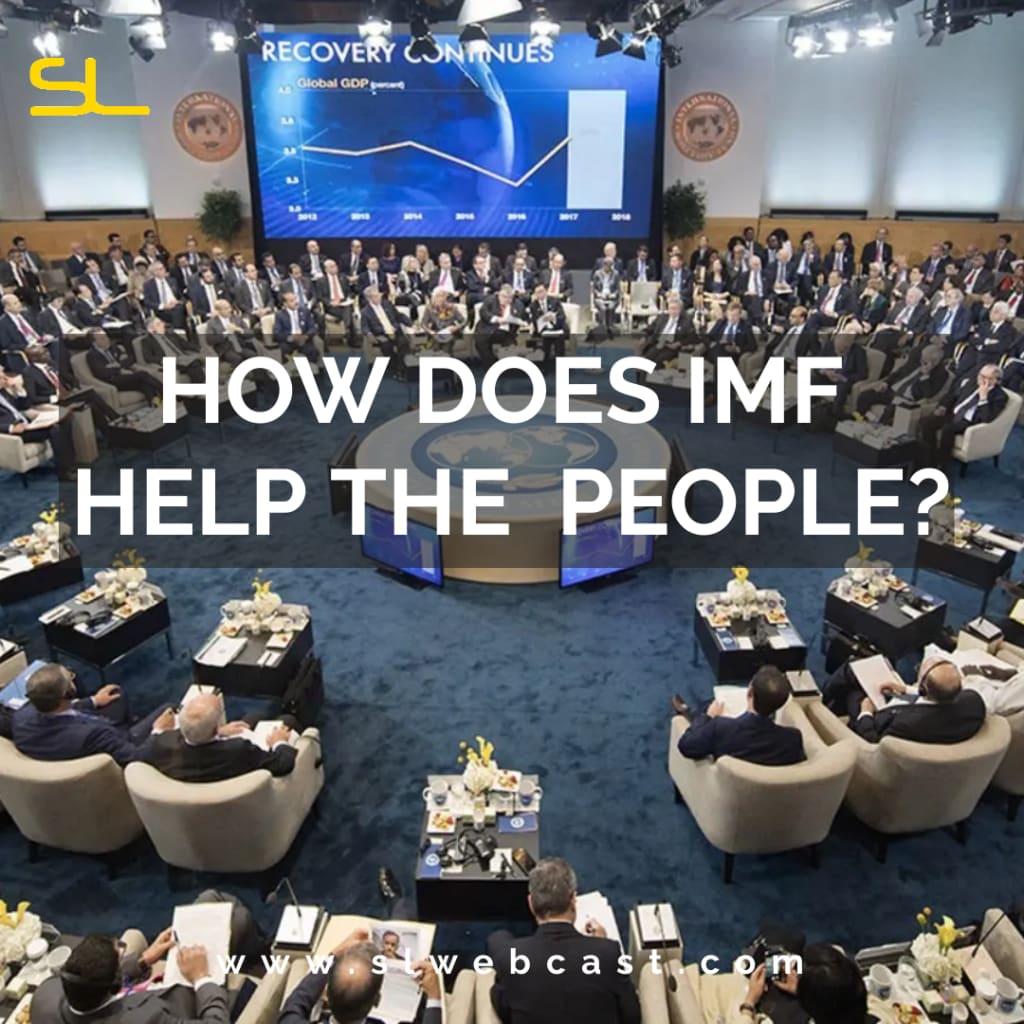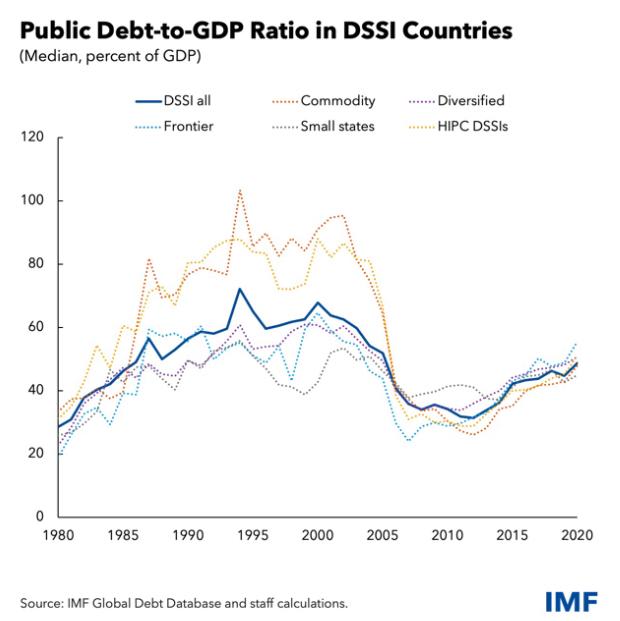How does the World Bank define itself?
The IMF is considered the International Monetary Fund, where if the economy in a country is very down, they help to maintain the country by giving money, although it will be a limited loan, and around 189 countries pay into it. The IMF is an international organization that provides monetary, financial, and technical assistance to its member countries to help them achieve macroeconomic stability and sustainable economic growth. Through its Extended Fund Facility (EFF), the IMF provides concessional loans to help countries facing major economic difficulties, such as those caused by the pandemic. The IMF’s policy advice and technical assistance can help ountries address their economic and financial problems, while its financial assistance can help meet a country’s balance of payments needs. In addition, the IMF promotes good governance and encourages structural reforms, such as improving the business environment, enhancing the role of the private sector in the economy, and reducing the level of corruption. The IMF also encourages countries to protect the most vulnerable groups, such as those affected by the pandemic, by providing targeted fiscal and monetary measures, such as social protection programs and unemployment insurance.

The Purpose of IMF for Sri lanka and other countries
The IMF’s infrastructure involves a comprehensive set of measures to support Sri Lanka in its efforts to achieve macroeconomic stability and sustainable growth as our country is currently facing a huge economic crisis where people hardly find one proper meal to fill their stomachs. This includes providing financial assistance through an Extended Fund Facility, providing technical assistance and policy advice, and helping to strengthen public financial management and the policy framework The IMF’s infrastructure also includes measures to protect the most vulnerable groups. This includes increasing social protection programs, such as unemployment insurance and cash transfers, as well as providing targeted fiscal and monetary measures to help offset the economic impact of the pandemic. Additionally, the IMF encourages Sri Lanka to adopt reforms to strengthen fiscal transparency and accountability, and to improve the judicial system to ensure that those responsible for corrupt practices are held to account. Overall, the IMF’s infrastructure is aimed at helping Sri Lanka to achieve economic stability, reduce corruption, and protect the most vulnerable groups from the effects of the pandemic In addition to helping Sri Lanka, the IMF also provides support to other countries. It works to promote global economic stability by offering assistance to member countries in the form of loans, technical advice, and policy advice. This assistance is aimed at helping countries to achieve macroeconomic stability and sustainable economic growth. By providing countries with both financial and technical assistance, the IMF helps countries to overcome their economic difficulties, address the root causes of their problems, and become more competitive in the global economy.

How does the IMF help the people ?
the financial capacity to meet its external debt obligations and to support the country’s policy objectives of protecting the most vulnerable from the pandemic’s economic consequences and advancing structural reforms to tackle the country’s corruption issues. The IMF’s EFF commits the country to a program of fiscal and monetary measures, including fiscal consolidation and monetary tightening, as well as measures to protect the most vulnerable groups. The program also includes reforms to strengthen transparency and accountability, improve the business environment, and increase the role of the private sector in the economy. IMF’s infrastructure is to protect the most vulnerable from the economic consequences of the pandemic and tackle the country’s corruption issues The EFF has had a positive impact on the Sri Lankan economy. The program has allowed the country to meet its external debt obligations and begin to address its fiscal deficit. The program has also allowed the country to access international support and technical assistance. As a result, the country has seen an improvement in macroeconomic stability and improved access to international markets. The EFF has also helped Sri Lanka to implement structural reforms to improve transparency and accountability, and to strengthen the business environment. In addition, the program has encouraged the private sector to take greater risks and to invest in the Sri Lankan economy. Overall, the EFF has been a positive force for the Sri Lankan economy.
What will debt restructurings in DSSI countries involve?
DSSI stands for Debt Service Suspension Initiative. and debt restructurings in DSSI countries will involve a wide range of activities, including debt relief, debt rescheduling, debt swaps, and debt write-offs. In many cases, the restructuring process involves negotiations between creditor countries and debtor countries to reach an agreement on the best way to address the country’s debt burden. Restructuring may also involve a review of a country’s public financial management practices, and potentially some form of debt forgiveness. Debt restructurings in DSSI countries will raise complex issues for both external and domestic debtors, as well as creditors. In particular, they must ensure that any restructuring is just, equitable and sustainable, and that it does not lead to a further accumulation of debt. As part of the process, creditor countries will need to consider ways to ensure that the debt burdens of DSSI countries are managed in a transparent and accountable manner. On the domestic side, there will be difficult trade-offs between the need to restructure sovereign debt owed to domestic banks, in some cases, and the impact of those restructurings on financial stability and domestic banks ability to finance growth. In addition, countries must ensure that any debt restructuring is well-structured to ensure that debt burdens are manageable and sustainable in the long-term. On the external side, increased diversity in creditor composition raises

DSSI countries used to borrow mainly from Paris Club official bilateral creditors and private banks, alongside multilateral institutions. Today, they may also have significant exposures to other creditors, including private bondholders, other investors, and international financial institutions. As such, debt restructuring negotiations are likely to involve a broader set of actors, with a range of interests and perspectives. Finally, debt restructurings must consider the impact on the poorest and most vulnerable countries. In addition, the process must ensure that debt relief is targeted to those countries that need it the most. Doing so will help create a more stable and equitable global financial system.
IMF approved $3bn Bailout for Sri lanka
The International Monetary Fund approved the $3 billion bailout package on Wednesday. The package includes $2 billion in IMF loans and $1 billion in debt relief from other lenders. It aims to help the country address its economic and social crises, restructure its debts, and restore investor confidence. The bailout follows months of negotiations between the IMF, the Sri Lankan government, and other lenders, including China, which had resisted the IMF’s terms. The package is expected to help Sri Lanka stabilize its economy, reduce its debt burden, and attract new foreign investment. The government hopes the package will help it restore confidence in the country’s economic institutions and create jobs and opportunities for its people. In exchange for the bailout, the government has agreed to implement a range of economic reforms, including reducing government expenditures, cutting subsidies, and increasing tax revenues. The government has also committed to strengthening its financial sector and improving its anti-corruption laws. The IMF has warned that Sri Lanka must continue to adhere to its reforms for the bailout to be successful.
Kristalina Georgieva, the managing director of the IMF, stated that Sri Lanka also has to implement several changes.
“Over the country of Sri Lanka to overcome the crisis, timely and accurate completion of the EFF-supported plans and solid commitment for the reforms is critical,” the statement reads.
She made a point of stressing the demand for “ambitious revenue-based fiscal consolidation.”
“Sustained fiscal institutional reforms on tax administration, public financial and expenditure management, and energy pricing are critical for the fiscal adjustments to be successful,” Georgieva said in the statement.
The IMF initiative would assist raise Sri Lanka’s standing, according to a statement from President Ranil Wickremesinghe’s office.
The government has implemented a number of measures to attract foreign investment, including tax cuts and a raft of reforms to make it easier for firms to do business in Sri Lanka. It has also sought to expand the country’s exports, particularly in the apparel, tea, and rubber industries. The government has also implemented a number of austerity measures, such as raising taxes on fuel and public transportation, to reduce its budget deficit and improve macroeconomic stability. The government has also implemented steps to improve governance and fight corruption, such as establishing an independent Anti-Corruption Commission and increasing the powers of the Financial Intelligence Unit. The government has also sought to increase employment opportunities by encouraging foreign direct investment, promoting small and medium enterprises, and encouraging the development of tourism.


